A Look into Zambian Culture
Beyond traveling to Zambia to implement EWB at BU’s cell signal amplification system and Biosand water filtration system this past August, the travel team experienced a culture much different from our own. The first main difference between life in Naluja and life in Boston is the environment itself. Naluja has two main seasons: wet and dry. “I think we saw 2 clouds the entire trip,” said Scott Nickelsberg, a member of the team, about implementation during the dry season. The photos above provide a small window into Zambia’s dry-season environment.
In addition to the environment, the way of life is very different in the community of Naluja. The team collectively described the culture as ‘welcoming’ and Donovan Guttieres, another team member and this year’s E-board President, remembers the “sincere human-centered relationships” that contrast our often “distracted” lifestyle. What was even more distinct about their way of life was their pace of life; according to Scott, “Eventually, we got used to it taking 2 hours to have lunch, and it was good to slow down and take it all in.” Their slower pace proved a large adjustment for the travel team; but learning how the Nalujans live helped the travel team understand their needs and difficulties that we, as an EWB chapter, can try and remedy. Retrieving water from a well or other source usually requires a long walk and a taxing trek back with barrels of water in tow. Below is a photograph of a community member standing in a well. Only by seeing the community’s needs can we come up with solutions.
The travel team also experienced some of the more recreational aspects of the community’s culture. Mentor Josh Das remembers, “We were able to socialize in the community – through soccer, a cook-out, and then dancing– and I think the community felt that we were part of them, not just coming in for a short time.” Soccer is a huge part of Zambian culture and travel team members played right along with the community. The photo below depicts one of these soccer games where community members got the travel team involved in their favorite sport. In addition, the travel team learned to the cook the traditional Nshima, a staple in Zambian cuisine. Lauren Etter, pictured cooking Nshima below, remembers, “We all loved it, Donovan and I ate it straight up sometimes but it is traditionally served with relish and either fish, steak, chicken, or goat.”
To share our appreciation for Zambian culture with BU and the surrounding community, we are gearing up for our largest fundraising event of the year: the Zambian Cultural Night. We are looking forward to sharing Zambian culture, food, and music with students, professors, and anyone interested in learning more on November 13th! You can attend Zambia Night: A celebration of Culture and Sustainable Development in Sub-Saharan Africa by going to: zambianight.eventbrite.com to buy a ticket. We look forward to seeing everyone there!
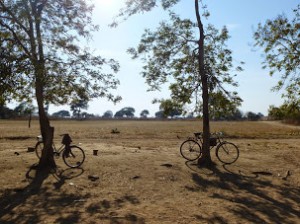
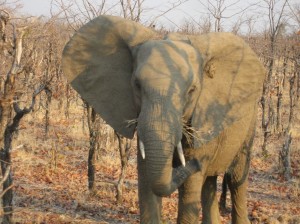
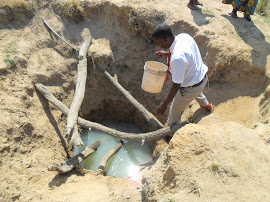
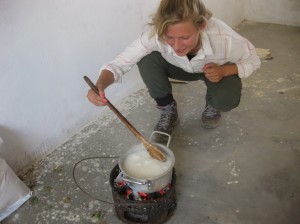
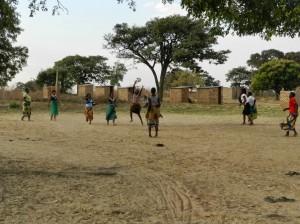
Leave a comment